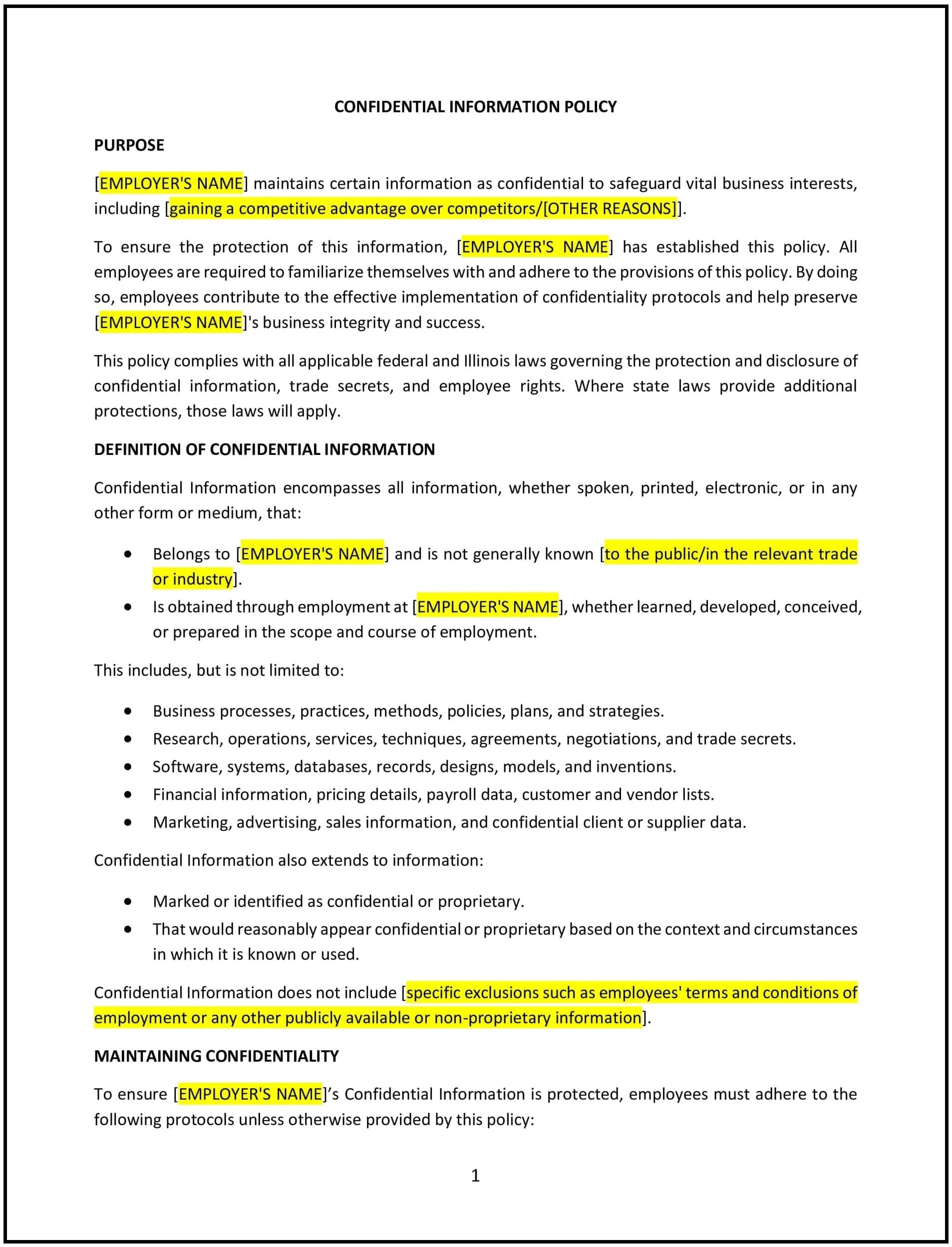Confidential information policy (Illinois): Free template
Got contracts to review? While you're here for policies, let Cobrief make contract review effortless—start your free review now.

Customize this template for free
Confidential information policy (Illinois)
This confidential information policy is designed to help Illinois businesses safeguard sensitive data, including trade secrets, client information, and proprietary materials. It outlines expectations for handling, sharing, and protecting confidential information to prevent unauthorized access or disclosure.
By adopting this policy, businesses can enhance security, maintain trust, and comply with Illinois laws and industry regulations.
How to use this confidential information policy (Illinois)
- Define confidential information: Specify the types of information considered confidential, such as financial data, employee records, client details, and trade secrets.
- Establish handling guidelines: Provide instructions for accessing, storing, and transmitting confidential information securely.
- Restrict disclosure: Prohibit unauthorized sharing of confidential information with third parties, including employees without a legitimate business need.
- Require agreements: Mandate confidentiality agreements for employees, contractors, and vendors with access to sensitive information.
- Include reporting procedures: Require employees to report suspected breaches of confidentiality immediately to their manager or HR.
- Emphasize termination obligations: Outline the requirement for employees to return or delete all confidential information upon leaving the company.
- Provide training: Offer regular training on safeguarding confidential information and recognizing potential security risks.
- Monitor compliance: Conduct audits and reviews to ensure adherence to the policy and address gaps in security measures.
Benefits of using this confidential information policy (Illinois)
This policy provides several benefits for Illinois businesses:
- Protects sensitive data: Reduces the risk of unauthorized access or disclosure of confidential information.
- Maintains trust: Builds confidence with clients, employees, and stakeholders by demonstrating a commitment to data security.
- Promotes compliance: Aligns with Illinois laws, such as the Illinois Trade Secrets Act, and industry regulations.
- Enhances accountability: Clarifies employee responsibilities for safeguarding confidential information.
- Prevents disputes: Establishes clear guidelines for handling sensitive information, reducing misunderstandings or legal challenges.
Tips for using this confidential information policy (Illinois)
- Communicate the policy: Share the policy with employees, contractors, and vendors, and ensure it is included in employee handbooks.
- Use confidentiality agreements: Require employees and third parties to sign non-disclosure agreements (NDAs) before accessing confidential information.
- Limit access: Restrict access to sensitive data based on job responsibilities and implement role-based permissions.
- Educate employees: Provide training on identifying, handling, and reporting potential security risks.
- Update regularly: Revise the policy to reflect changes in Illinois laws, industry standards, or company practices.